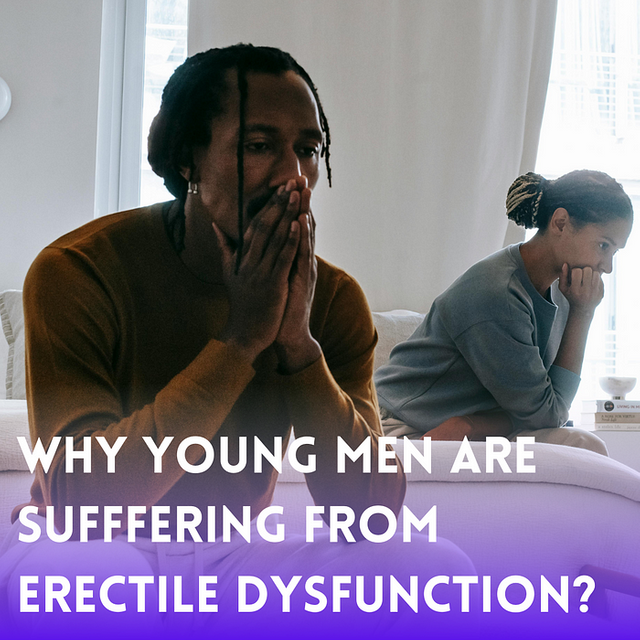Why young men are suffering from Erectile Dysfunction
Young men’s erectile dysfunction (ED) is a complex condition that can result from a number of behavioral, psychological, and physical causes. For efficient management and prevention, it is essential to comprehend these fundamental reasons. Physically, cardiovascular problems are a major cause of ED since diseases including atherosclerosis, high blood pressure, and high cholesterol prevent the penis from receiving enough blood flow. Diabetes exacerbates sexual dysfunction by damaging nerves and blood vessels, and hormonal abnormalities like low testosterone exacerbate the issue. Obesity impacts cardiovascular health and is a contributing factor to hormone imbalances. It is frequently associated with poor food and inactivity. Multiple sclerosis, Parkinson’s disease, spinal cord injuries, and other neurological conditions might affect the nerve signals required for an erection.
Additionally, psychological elements are important. Excessive amounts of stress and anxiety can negatively affect erectile function, whether they are caused by everyday life or particular performance requirements. Another factor in ED is depression, which lowers a person’s desire in sex in general. Relationship problems like inadequate communication or unsolved disputes can also produce emotional obstacles to a fulfilling sexual life. Lifestyle decisions that damage blood vessels and affect overall bodily processes, such as smoking and excessive drinking or drug use, exacerbate the situation.
The psychological effects of contemporary living introduce yet another level of intricacy. A common source of anxiety and stress that might impair erectile function in young men is the intense pressure they put on themselves to perform well sexually. Overindulgence in porn can lead to inflated expectations and complicate real-life sexual interactions.
A diversified strategy is needed to address these problems. Maintaining a balanced diet, getting regular exercise, abstaining from dangerous substances like tobacco and excessive alcohol, and living a healthy lifestyle can all help to improve general health and lower the risk of ED. Anxiety can be lessened by practicing stress management strategies including yoga, counseling, and meditation. Seeking treatment for relationship problems and having open discussions with a spouse about sexual health can also be helpful. Crucially, seeking medical advice from a provider is essential for identifying underlying medical concerns, getting the right treatment, or getting referred to experts. This all-encompassing strategy guarantees that the psychological and physical components of ED are treated, improving young men’s general well-being and sexual health.
